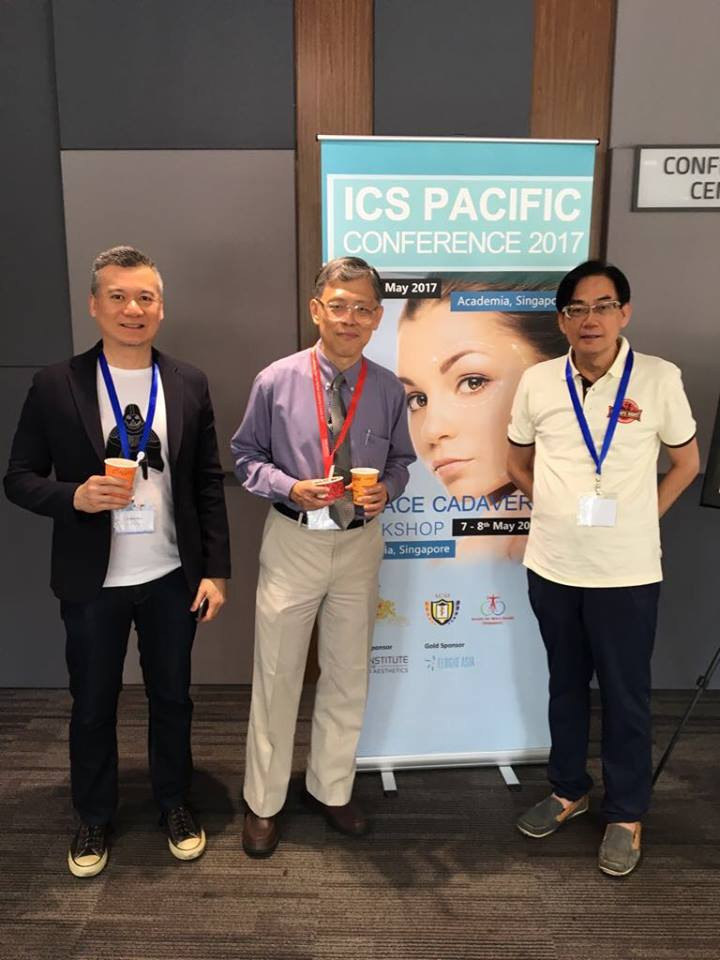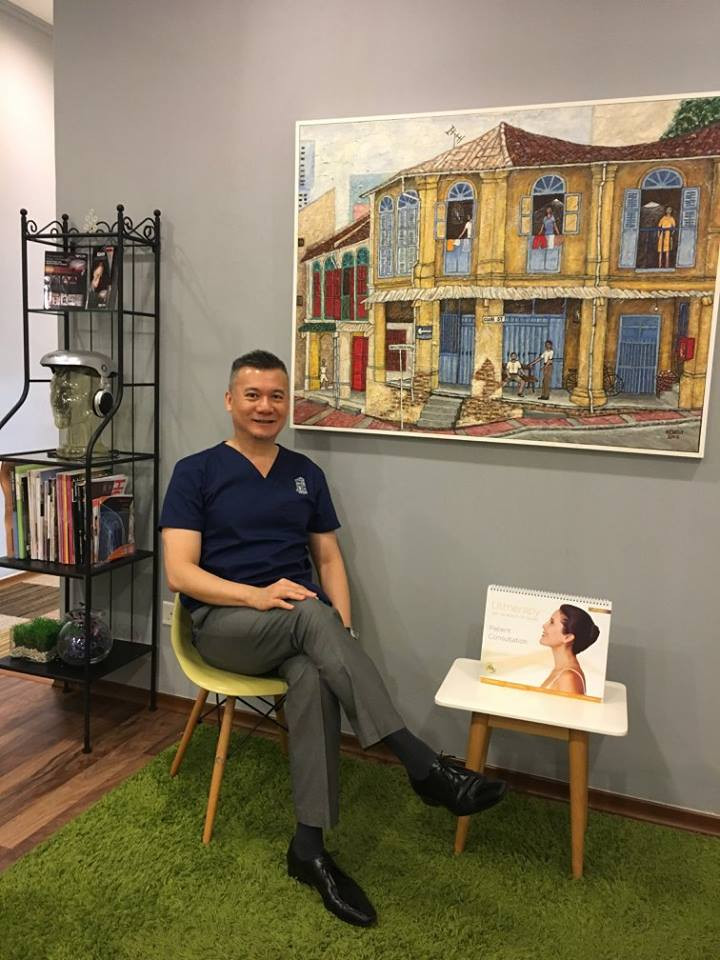Growing up, Dr Nicholas Ngui, 58, always wanted to be a doctor and even after 5 decades, this passion never once wavered.
As a young doctor, he aspired to have a little clinic of his own practicing family medicine and providing care to a community of people, much like a “kampung” doctor of the past.
Life turned out slightly differently though and while not quite a “kampung” doctor, Dr Nicholas now runs a medical aesthetics and laser clinic - Neu Age Clinic, nestled in the heritage district of Bukit Pasoh and Duxton Plain, with many years of clinical practice and pharmaceutical medicineexperience behind him.
Focusing on non-invasive treatments to enhance facial aesthetics, he offers customized treatments to helps individuals address their various skin related concerns safely and effectively. His core strengths are in the treatment of acne, eczema and hyperpigmentation, facial skin rejuvenation and electrosurgery.
“In an increasingly appearance conscious world, the psychological impact of these conditions can be tremendous and my mission is to help these individuals look better, feel better and age gracefully,” said Dr Nicholas.
However, his journey into the aesthetic medicine field was something he could not have imagined initially.
When he first started out as a general practitioner in the late 1980’s, the introduction of managed healthcare providers as the middlemen between doctors and corporate clients sparked fierce competition within the medical industry.
This caused doctors to start slashing prices for consultations and treatments which cheapened the once admired standing of family physicians and made starting a private clinic less economically viable.
There was ultimately a compromise in the quality of care a patient receives which did not appeal to Dr Nicholas.
“I was also feeling a little restless about the prospect of living the rest of my career cooped up in a small room treating coughs and colds. There was this strong desire to expand my horizons.”
These circumstances led Dr Nicholas to make a career switch to the pharmaceutical industry at the age of 30 where he worked as a pharmaceutical physician and medical director for 12 years with a couple of multinational drug companies.
“It was completely different from clinical practice and demanded the use of new skill sets which took me out of my comfort zone”
From conducting clinical research, giving lectures to the medical community and training drug sales representatives to becoming an expert at medical marketing of new technologies and drugs, he also had to develop people management and public speaking skills.
Work as a medical director, especially when he had responsibility for the Asia Pacific region, required him to travel extensively which in turn gave him new perspectives in looking at the world.

Over time, however, the corporate world proved to come with its own set of problems arising from internal politics and company mergers and acquisitions.
After his job was made redundant by a hostile corporate takeover, Dr Nicholas decided to return to clinical practice. He had to rebuild his career as a practising physician from scratch, initially as a locum doctor (a doctor who temporarily takes over when another doctor is absent) and later as a full time family physician.
“Getting back to seeing and treating the sick wasn’t as difficult as one would imagine, despite the 12 years lapse. I guess my innate nature to treat had never left me.”
Fueled by an interest in wanting to treat skin problems better, he later chose to go back to school to pursue a graduate diploma in family practice dermatology at the age of 49.
This triggered an endeavour to reinvent himself and prompted him to move from general medicine to aesthetic medicine – a new and fast evolving field of medicine which focuses on improving cosmetic appearance through non-invasive therapy.
His fascination with high technology and interest in performing hands-on procedures helped with this move because medical aesthetic treatments often involve the use of laser and other cutting edge technologies.
He also saw this as a way in which he could help his patients feel happier and more self confident especially when the skin conditions affect their facial appearance significantly.
When the aesthetics clinic he had worked for became more commercially driven after an acquisition, he decided that it was time to open his own clinic and to run it the way he wanted – to be more patient focused and less profit driven.
However the decision wasn’t a straightforward one as there were strong pull and push factors.
“Was it wise to go solo at this relatively late stage of my career at the age of 53, when I was already doing very well at the (previous) clinic?”
“Was I prepared to face the challenges and uncertainties of doing my own thing?”
“My desire to venture out on my own was still strong and I did not want to go through life regretting that I should have ventured out instead of playing it safe and staying back”.
These were some questions and thoughts that kept going through his mind.
Setting up and operating his own clinic became one of the biggest challenges he had to face where he had to shoulder and manage everything while bearing the burden of keeping the business afloat, especially during economic downturns.
While scary at first, it proved to ultimately be a liberating and satisfying move.
Also, it does appear that he has still managed to achieve his lifelong aspiration to be a “kampong doctor” with his own little practice, despite having gone a full circle and albeit serving a slightly different community of people.

With his years of experience and after having come so far, we asked Dr Nicholas what advice he would give to his younger self if he could.
“When making important life and career decisions, don’t let emotions and anger get in the way of making the correct decision. Carefully weigh the pros and cons. Consult friends and most importantly follow your heart.”
“Once you have made a decision, don’t regret especially when circumstances change.”
“Try to live in the now. Often times, we cannot let go of the past but we must. Ruminating on past affects our well being and what we can achieve today. What is done is done. Learn from it and move forward.”

















